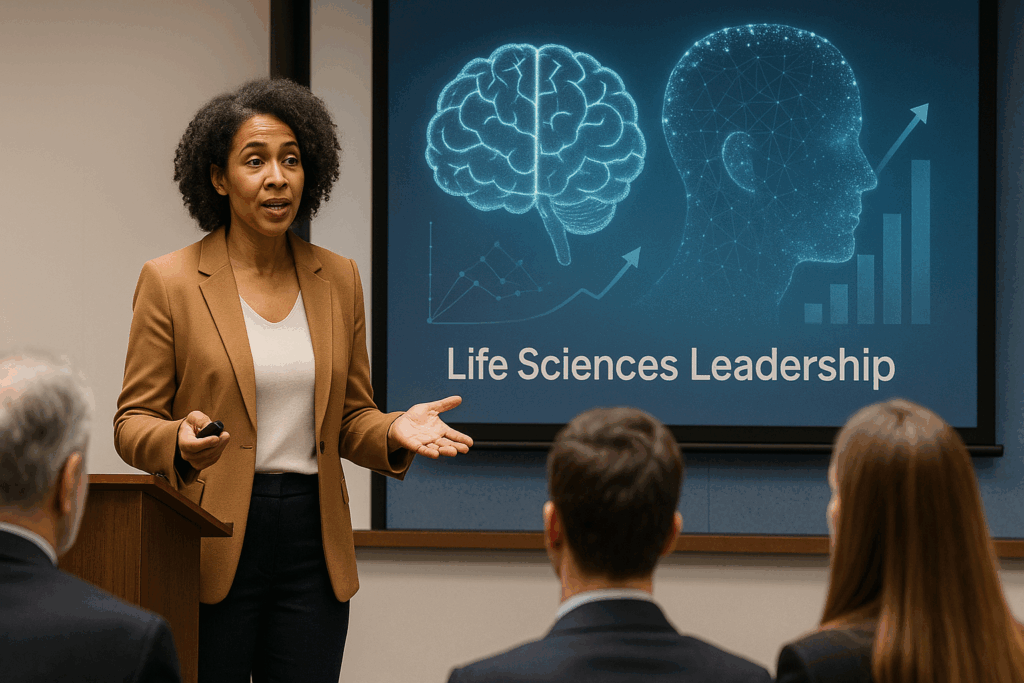Life sciences has always been an industry built on purpose—advancing medicine, improving outcomes, and extending life. But in the rush to innovate faster, scale larger, and automate more, something deeply human has quietly slipped through the cracks: empathy.
Ironically, the very industry dedicated to healing people often struggles to nurture the emotional and relational health of its own teams. Yet neuroscience reveals that empathy isn’t just a “nice-to-have” trait—it’s a biological and strategic advantage.
In an industry defined by intellect, regulation, and precision, empathy may just be the next true differentiator.
The Empathy Gap in Modern Life Sciences
Pharma, biotech, and med-tech organizations are filled with brilliant minds: scientists, clinicians, and strategists who thrive on solving complex problems. But those same environments can unintentionally reward analysis over connection, process over presence.
The result? Teams that are highly capable—but often emotionally disconnected. Surveys consistently show that employee engagement in life sciences lags behind other industries, despite high pay and purpose-driven missions. Why? Because engagement isn’t built on compensation—it’s built on connection.
Empathy is what turns communication into understanding, data into decisions, and leadership into influence.
The Neuroscience of Empathy
Empathy isn’t an abstract concept—it’s a neurochemical process. When we experience genuine connection, our brains release oxytocin, the “trust hormone.” This neurochemical lowers defenses, promotes collaboration, and enhances openness to new ideas.
On the other hand, when people feel dismissed, pressured, or misunderstood, the brain triggers cortisol, the stress hormone. Cortisol narrows focus, suppresses creativity, and drives disengagement—the exact opposite of what innovation demands.
In other words, empathy doesn’t just make people feel better. It makes their brains work better.
Empathetic leadership activates neural circuits in others that enhance cooperation, problem-solving, and motivation. In highly regulated, high-stakes environments like life sciences, where cross-functional collaboration is key, that kind of brain alignment is gold.
Why Empathy Is a Business Strategy
Empathy drives performance—and now, we can measure it.
- Engagement:Leaders who demonstrate empathy have teams that report up to 40% higher engagementand significantly lower turnover.
- Innovation:Psychologically safe teams produce 2x more creative solutionsbecause their brains are not in defense mode.
- Sales and Medical Affairs:Empathy is the foundation of patient-centered and physician-centered conversations. The best communicators aren’t just persuasive—they’re perceptive.
When people feel understood, they listen differently. They remember differently. They decide differently.
Empathy isn’t weakness—it’s strategic intelligence.
Rehumanizing Science Through NeuroCoaching®
At Braintrust, our work with global life sciences organizations has shown that the fastest way to close the empathy gap is through coaching grounded in neuroscience.
Our NeuroCoaching®model helps leaders understand how to communicate in alignment with how the brain builds trust. It teaches them to:
- Recognize and regulate emotional triggers (both theirs and others’).
- Use curiosity-driven questions to uncover motivation, not just metrics.
- Deliver feedback in a way that activates learning instead of defensiveness.
- Connect every business objective back to human meaning and shared purpose.
This is what we call rehumanizing science—bringing the emotional intelligence back into environments that have long prioritized the cognitive.
When empathy becomes operationalized—not just encouraged—cultures shift from compliance to commitment. People no longer just followthe mission; they feelit.
The Leadership Imperative
As AI, automation, and digital transformation redefine the life sciences workplace, the one skill that can’t be replicated by algorithms is empathy. Machines can analyze data—but only humans can connect the dots of emotion, intention, and meaning.
The future belongs to organizations that balance innovation with inclusion, speed with sensitivity, and precision with compassion.
Because science may save lives—but empathy changes them.
A Call to Rehumanize
Empathy is not the opposite of efficiency—it’s the enabler of it. When people feel safe, understood, and valued, they don’t just perform—they thrive. And in industries dedicated to improving human health, that’s not just good business; it’s a moral obligation.
Rehumanizing science isn’t about doing less—it’s about leading differently. The leaders who learn to connect brain-to-brain, not just business-to-business, will define the next generation of success in life sciences.
At Braintrust, we teach leaders in the life sciences how to translate neuroscience into communication that builds trust, accelerates innovation, and drives measurable results. Our NeuroCoaching® programs help rehumanize science—one conversation at a time.
Learn more about how we’re helping life sciences leaders lead with both head and heart at www.braintrustgrowth.com.





